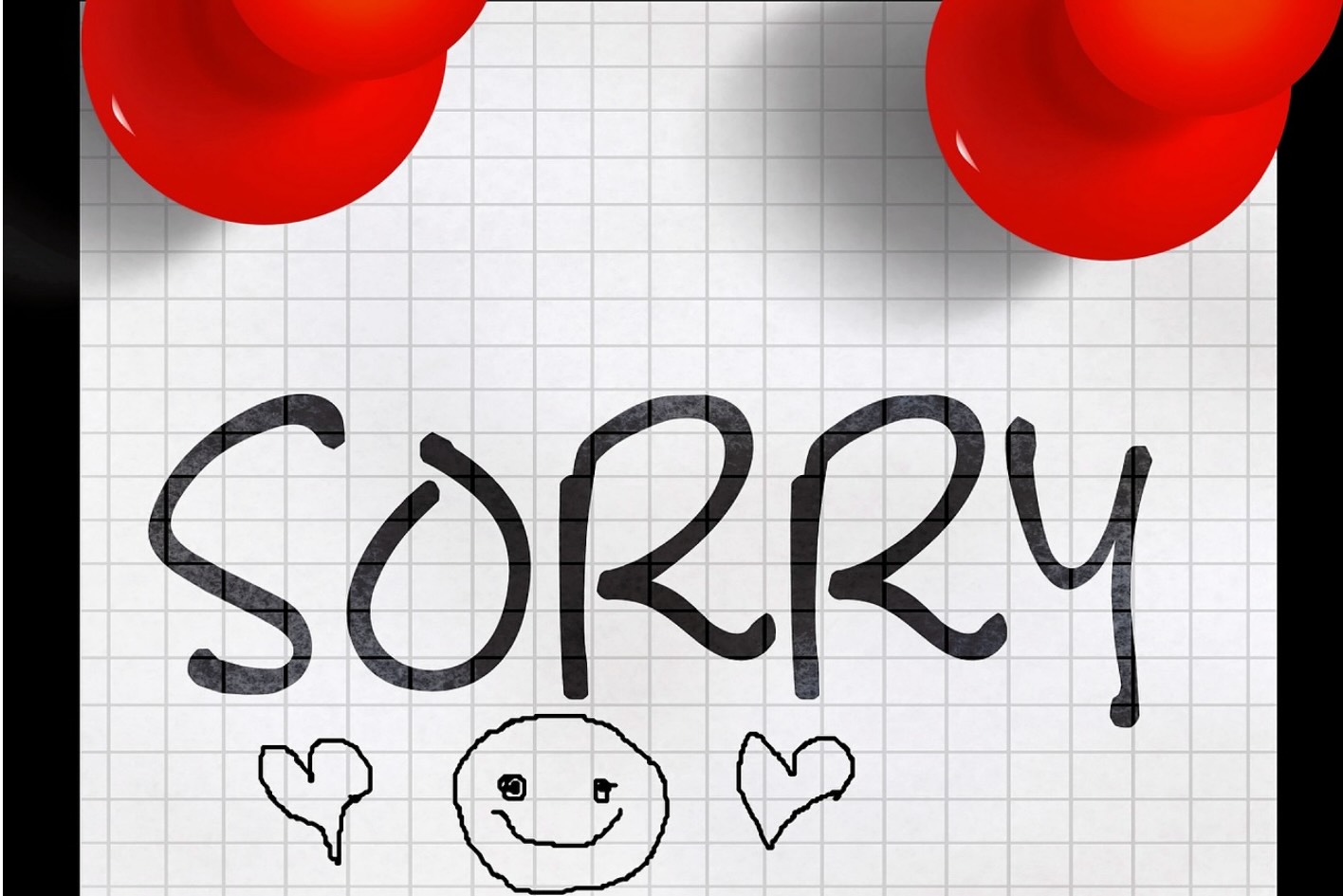How to Apologize in Every Situation
Apologizing is a big part of our lives, whether we like it or not. It also happens to be one of the hardest human emotions to properly express due to the complex nuances of each situation. In addition, we apologize much more often than we realize. Think about how many times a day you excuse yourself– after bumping into a stranger in the subway, dropping a pen someone is handing to you, or being slightly late to a business meeting. Regardless of the circumstances, learning how to apologize appropriately will surely help you repair any damaged relationships and correct any wrongs. Hopefully, you will not find yourself in these sticky situations where you need to use these phrases often. However, in case you do, we’ve got you covered!
Minor Mistakes (casual)
Some mistakes are very small and don’t require a serious apology. These often include social “oopsie” moments, such as stepping on someone’s foot by accident or grabbing someone else’s coffee cup at the to-go stand.
- Sorry
This short yet classic apology can be used in any situation and context. Longer variations, such as “I am sorry,” should be left for bigger mistakes. In addition, “Sorry” can also be used to interrupt people when you need to get their attention.
E.g., “Sorry, can I pass through?”
E.g., “Sorry, I forgot my notebook. Can I have a piece of paper?”
- My bad
“My bad” is one of the most casual ways to apologize. We usually use this phrase with close friends and family. However, it is also acceptable in business contexts if the mistake is very minor, such as mistakenly handing your coworker a black pen when they asked for a blue one.
E.g., “My bad, dude. I forgot that we have plans this weekend.”
E.g., “Oh, my bad. I pressed the wrong elevator button.”
- My fault / My mistake
If you are ever worried that “My bad” might be too casual, feel free to use “My fault” or “My mistake” instead. While “My bad” is alright to use with a coworker, the other two options are more suitable if speaking to a senior manager or an executive.
E.g., “My mistake. I meant to say that I was free next Friday, not this Friday.”
E.g., “I meant to give you the 2023 report instead of the 2022 one. My fault, sir.”
- Oops
Using “oops” allows us to set a light-hearted tone to our apology. It is a very friendly expression for non-serious mistakes. We often pair this phrase with a laugh or a smile to show our friendly approach. It is best to use “oops” for accidents or small mix-ups, such as dropping a piece of paper that you were handing to someone.
E.g., “Oops, I accidentally unplugged the monitor!”
E.g., “Oops, I spilled some water. Let me go get some tissues.”
Minor Mistakes (formal)
In most daily situations, the casual phrases for minor mistakes should be enough. However, sometimes we find ourselves in a more formal setting. Some examples include official meetings and presentations at work, a night out at the ballet or opera, and dinner at an expensive fine-dining restaurant.
- Excuse me
“Excuse me” is a good phrase to use when we want to get someone’s attention or when we have no choice but to interrupt. In addition, we can say it to apologize for tiny mistakes, such as bumping into someone on the street. It can generally be used in every situation and not only in formal ones. It is a good and safe choice to use when you are not sure about the formality of your environment.
E.g., “Excuse me. May I please have another glass of wine?”
E.g., “Excuse me. May I ask a question?
- Pardon me
“Pardon me” is almost identical to “Excuse me.” Both can be used in formal situations to interrupt, ask a question, or apologize for small errors. The one small difference between the two phrases is that “pardon me” is much more formal, so it is less commonly heard in daily life.
E.g., “Pardon me. Do you happen to have the time?”
E.g., “Pardon me. I am trying to get to my seat in this row.”
- My apologies
“My apologies” is a more formal version of “My fault” and “My mistake.” This phrase can be used to show accountability and owning up to our mistakes. It is mostly used in professional settings and by customer service staff.
E.g., “My apologies, sir. Your hotel room won’t be ready for another 15 minutes.”
E.g., “My apologies for the shipping delay. We had some minor troubles at our warehouse.”
Personal Mistakes
In this segment, we will move on to apologizing for bigger mistakes. When we inevitably do something wrong, a good apology is crucial to restore broken trust and fix our relationships. The following phrases show deeper remorse for our actions and allow us to acknowledge our wrongdoings.
- I am so sorry / I am really sorry
Building on the previous simple “Sorry,” we can use the longer full version “I am sorry” to express stronger regret. Adding “So” or “Very” can further strengthen the apology. It is also important to deliver these expressions with the proper intonation for the full impact to be felt. Simply emphasize the intensifiers (so / very) when using these phrases!
E.g., “I am SO sorry that I forgot your birthday.”
E.g., “I am VERY sorry for forgetting to send you the ticket before your train.”
- I messed up
“I messed up” is a more casual way of saying, “I made a mistake.” This phrase is a powerful way to admit your fault and show the other person that you know you have done something wrong. It can be used as an introduction to your apology to start the difficult conversation. Feel free to follow it up with any other “I am sorry” variations.
E.g., “Hey, I messed up. I scratched your sunglasses when I borrowed them. I am sorry.”
E.g., “I’m so sorry that I was late to your graduation ceremony. I messed up.”
- I feel awful
The phrase “I feel awful” shows the other person that you feel really bad about your mistake. It can be very effective at boosting your apology by including an emotional element. By showing someone that we feel emotionally distressed by our actions, we create a more sympathetic and understanding environment to resolve our issues.
E.g., “I feel awful about breaking your camera. I’m very sorry.”
E.g., “I can’t believe I did that. I feel awful.”
- Please forgive me
The phrase “Please forgive me” is a very humble and sincere one. It asks the other person for forgiveness in a much stronger way than a simple “I’m sorry.”
E.g., “I am very sorry for lying to you. Please forgive me.”
E.g., “Please forgive me. I didn’t mean to crash your car. It was an accident.”
- I owe you an apology
This is one of the more formal apology phrases we can use in a personal situation. It is often used to begin the conversation before explaining what exactly it is you did wrong. Due to its formality, it is the perfect phrase to use when apologizing to a coworker for a non-work-related issue.
E.g., “Hey Matt, I owe you an apology. I just realized that I never returned your phone call.”
E.g., “I owe you all an apology for yesterday. I had a family emergency, so I couldn’t make it to our annual meeting.”
Professional Mistakes
Apologizing in a professional or business situation can be tricky. The level of formality will depend on your relationship with the other party, the hierarchy, and how big the mistake was. In general, when apologizing on behalf of your company or team for a group mistake, you should use “we” instead of “I.” Using “I” in your apology places the blame directly on you, so think about whether you were alone in your error or not!
- I/We am/are truly sorry
This is an expanded and formal version of the casual “sorry.” The word “truly” carries a formal connotation and is good for professional cases.
E.g., “I am truly sorry for the trouble caused by my calculation mistake.”
E.g., “We are truly sorry for sending you the wrong items.”
- I/We apologize / I/We would like to apologize
Including the verb “apologize” in your statement further elevates the formality. Expanding further, adding “Would like to” takes you another step higher.
E.g., “I was wrong about the price. I apologize.”
E.g., “We apologize for the order processing delay.”
- Please accept my/our sincere apologies
This expression is similar to “Please forgive me” but much more formal. With it, you are pleading with the other party to sympathetically put an end to the issue. Due to the high formality, you might often hear this phrase coming from customer service employees, such as hotel management or wait staff in an upscale restaurant.
E.g., “Please accept my sincere apologies for overcharging your credit card by mistake.”
E.g., “We are recalling the new model of the car due to safety concerns. Please accept our sincere apologies.”
- I/We would like to offer my/our sincerest apologies
This phrase is very similar to the previous one. As you might imagine by now, adding “would like to” is often used in the English language to make the register even more formal. Furthermore, changing “sincere” to “sincerest” achieves the same task.
E.g., “I would like to offer my sincerest apologies to the team. I have not been able to retain the client after our negotiations.”
E.g., “We would like to offer our sincerest apologies for the wrong information in our previous email.”
- I/We regret / I/We deeply regret
Adding the word “regret” to your apology adds a strong emotional layer. There is a nuance of disappointment when we use regret to say sorry. In addition to apologies, we also use this phrase to officially deliver bad news that the other party might feel sad about. It is commonly seen as an opening statement in rejection emails, such as after applying for a job or a university.
E.g., “I regret the negative comments I made about our company’s management. That does not reflect how I feel.”
E.g., “We deeply regret to inform you that we have decided not to proceed with your application at this time.”
- An oversight on my/our part
An oversight is a type of mistake where you fail to notice something you should have. This phrase is frequently used to apologize for a lack of diligence or attention. Examples of an oversight include failing to accommodate a special request, forgetting to update a document, missing a deadline, and failing to notice typos in an important report.
E.g., “I apologize for not booking enough seats for your party. That was an oversight on my part.”
E.g., “We are sorry for the oversight on our part. We will update the sales figures immediately.”
After studying this guide, you should now be ready to deliver a proper apology with the utmost respect, no matter what kind of situation you find yourself in. Mistakes happen, and we are all human. However, with the right apology, you will be on the way to mending fences in no time!







